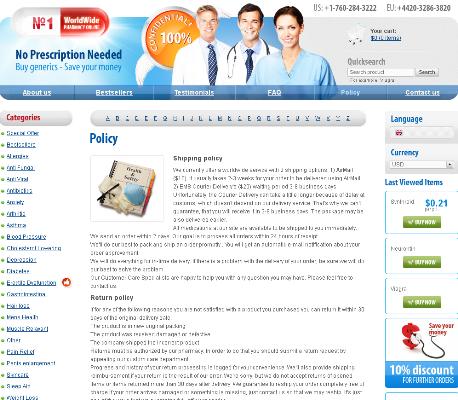Minocin: What Patients Should Ask Their Doctor
What Is Minocin and Its Primary Uses?
Minocin is a prescription antibiotic belonging to the tetracycline class, primarily used to treat various bacterial infections. Known for its wide range of applications, Minocin is effective against conditions like acne, respiratory tract infections, and urinary tract infections. Typically taken in capsule or tablet form, it works by inhibiting the growth and spread of bacteria. Patients are often eager to gain relief from persistent infections, making Minocin a popular choice under a doctor's guidance.
Managing accurate dosage and administration is crucial to avoid complications. It's important to note that while Minocin can provide significant relief, it can also lead to potential side effects, such as dizziness and gastrointestinal disturbances. Hence, patients must discuss their medical history and current medications with their healthcare provider before beginning treatment.
| Primary Uses | Conditions Treated |
|---|---|
| Antibiotic treatment |
|
Potential Side Effects and How to Manage Them

Taking Minocin can lead to some side effects, ranging from mild to severe. Commonly reported ones include dizziness, nausea, and vomiting, often manageable with time and proper hydrations. If these symptoms persist or worsen, consult your doctor. Serious side effects such as severe headaches, vision changes, or unusual bleeding should be reported immediately as they may signal a more serious condition. Allergic reactions, albeit rare, can include rash, itching, or swelling, and also warrant immediate medical attention.
Effectively managing side effects often involves a few lifestyle adjustments. Eating small, frequent meals can mitigate nausea, while maintaining a regular sleep schedule can alleviate dizziness. Always remember to consult with your healthcare provider for personalized advice and management strategies.
Drug Interactions: What to Avoid While on Minocin
To ensure the effectiveness of Minocin, be cautious with certain drug interactions that could lead to adverse effects. For instance, taking Minocin with isotretinoin or acitretin, often prescribed for skin conditions, can increase teh risk of intracranial hypertension. Additionally, antacids or supplements containing calcium, iron, magnesium, or zinc might hinder Minocin’s absorption, reducing its efficacy. Always inform your doctor about any other medications, supplements, or herbal products you are using to acommodate a safe treatment plan, tailored specifically to avoid potentially harmful interactions.
Correct Dosage and Administration Instructions

When taking Minocin, ensuring you follow precise dosage and administration instructions is crucial for the medication to be effective. Typically, doctors recommend taking Minocin either one or two times daily, depending on your specific condition and response to treatment. It's important to take this medication on an empty stomach, either one hour before or two hours after meals, avoiding dairy products that can interfere with absorption. Patients should swallow the capsule whole with a full glass of water and remain upright for at least 10 minutes to prevent irritation of teh esophagus.
Missing a dose can be managed without panic, but it’s essential to take the missed dose as soon as you remember. However, if it is almost time for your next scheduled dose, skip the missed one and resume your regular dosing schedule. Do not double up to make up for a missed dose. Always following your healthcare provider’s recommendations and never altering the dosage without professional consultation can help you achieve the best results with Minocin.
What to Do If You Miss a Dose
Missing a dose of Minocin can disrupt your treatment plan, so it's essential to know what steps to take. If you realize you've missed a dose and it's fairly close to the time for your next dose, simply skip the missed one. Do not double up to make up for the missed dose, as taking excessive medication at once might cause more harm than good. You should continue with your regular dosing schedule to ensure that Minocin remains effective in treating your condition.
On the other hand, if you remember the missed dose in ample time, take it as soon as possible. However, logistical timing is crucial—taking doses too close together can increase the likelihood of side effects. Managing missed doses effectively can help maintain a consistent level of the drug in your system.
If you're consistently forgetting doses, discuss this with your doctor. They may have tips or tools to help you remember, or they could adjust your regimen if necessary. It's important to understand that missing doses regularly can reduce Minocin’s efficacy, delaying your recovery. Always keep this in mind for optimal health managment.
| Action | Recommendation |
|---|---|
| Missed dose | Take it as soon as possible, unless it's close to the next dose |
| Timing issue | Never double-up doses to compensate for the missed one |
| Frequent misses | Consult your doctor for an adjusted regimen or tips to remember |
Minocin in Pregnancy and Breastfeeding Considerations
For pregnant women, Minocin presents some challenges. Animal studies suggest potential risks to fetal development, though conclusive human data is limited. Physicians generally recomend avoiding Minocin during pregnancy unless absolutely necessary. It's vital to discuss with your healthcare provider to weigh the potential risks and benefits. New mothers should also exercise caution. Minocin can pass into breast milk and potentially affect a nursing infant. Decisions on whether to discontinue the medication or breastfeeding should be made in consultation with a healthcare provider, who can help you navigate these important choices.
Managing Minocin therapy during pregnancy and breastfeeding involves careful deliberation and professional advice. Notably, the risks of untreated infections must be balanced against the medication’s potential impacts. Always maintain an open line of communication with your healthcare provider about any concerns or side effects you experiance. By staying informed, you can better safeguard both your health and the well-being of your child.



